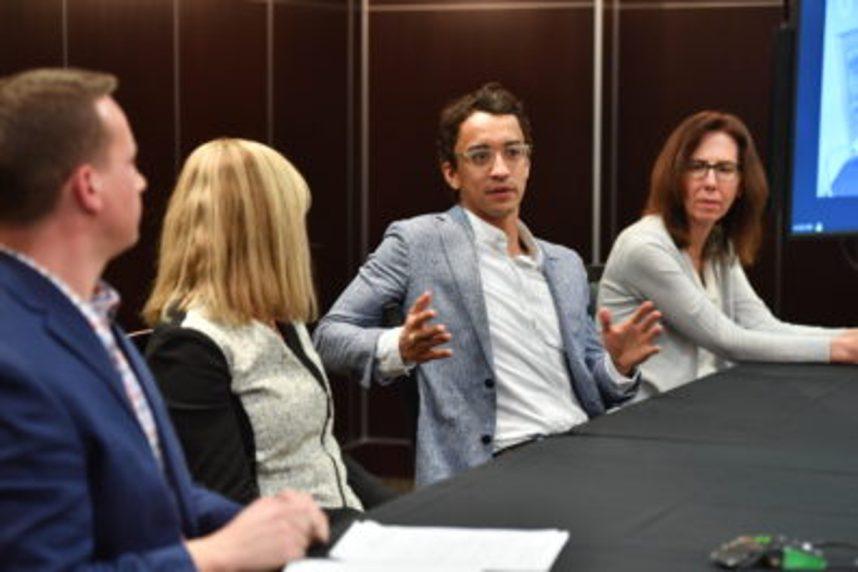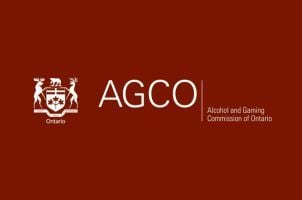Gaming Professor Says Responsible Gaming Programs Lacking in Effectiveness
Posted on: September 14, 2023, 02:46h.
Last updated on: September 14, 2023, 06:14h.
September is Responsible Gaming Education Month (RGEM), an annual initiative from the American Gaming Association that highlights and promotes the commercial and tribal gaming industries’ responsible gaming efforts. But a professor at Washington State University with a focus on gaming economics writes this week that regulation when it comes to gambling disorders largely isn’t working.

Kahlil Philander is an assistant professor at Washington State University’s School of Hospitality Business Management. Philander holds a Ph.D. from the University of Nevada, Las Vegas (UNLV), an MA in economics from the University of Toronto, and a bachelor’s with honors in finance from the University of British Columbia.
After his lengthy studies, Philander served as the director of social responsibility at the British Columbia Lottery Corporation (BCLC) where he oversaw the GameSense program, a responsible gaming initiative developed by the BCLC that has since been deployed by MGM Resorts across its US portfolio.
MGM this month announced it would place GameSense messaging inside the nine NFL stadiums where its BetMGM sportsbook will advertise this year.
Mounting Risk
In an op-ed published in GGB News, a weekly online newsletter published by Global Gaming Business, Philander opines that the US’ fragmented approach to responsible gaming, with each state having its rules on safeguarding consumers, isn’t in players’ best interest. Philander likened the current regulatory environment to what caused the 2008 financial crisis — “a misalignment of incentives” where banks were motivated to take enormous risks “without bearing the full consequences of their actions.”
Philander said that as long as those financial institutions met “narrow regulatory obligations, they were free to trade securities without due concern for the systemic risk they were creating for the entire industry.”
The gaming economics professor believes a similar story is being drafted in the US gaming industry.
Risk is piling up,” Philander wrote. “We continue to see expansion of gambling products and markets, but there has been little meaningful innovation in responsible gambling since self-exclusion programs were invented in 1989.”
Philander says current best-in-class responsible gambling programs require operators to post warning labels on their physical slot machines and table games. Online operators are often required to offer players time and deposit limit tools. Those are all fine, but Philander believes something must be done to encourage investments in responsible gaming innovation.
Pay for Safe Play?
Philander opines that regulators need to develop incentives through “two key practices: punishment for bad behavior and rewards for good behavior.” But that’s easier said than done.
Regulators already levy costly fines against casinos and online gaming operators found to violate responsible gaming protocols. Philander ponders if there’s a way to reward or incentivize operators to strengthen their own responsible gaming strategies without regulatory mandates.
“A much less practiced approach to align the interests of gambling operators with the public good is to reward operators for responsible conduct. This is a more complicated system to create, but potentially much more powerful,” Philander said.
Philander suggests there could be scientific and data-backed approaches to determine which operators are leading in terms of keeping known problem gamblers at bay.
“There could be an annual study to estimate the share of revenue that comes from patrons with gambling disorders. The scale of tax cuts can be balanced against estimates of offset harm. This approach is not an easy lift, but it does lead us in the direction of continual improvement, both in focusing on interventions that work and discarding policies that are a drain on resources,” Philander concluded.
A recent study from the American Gaming Association found that more than eight in 10 gamblers are aware of responsible gaming programs. About 80% of the gamblers polled said responsible gaming tools encourage safe play.
Related News Articles
UK Gambling-Related Suicide Research Program Seeks Funding Proposals
Abilify and Problem Gambling: Doctors, Patients ‘Unaware of Danger’
Wondr Nation Donates $250K to Responsible Gaming Research at UConn
Most Popular
Las Vegas Overstated F1 Race’s Vegas Impact — Report
Mega Millions Reportedly Mulling Substantial Ticket Price Increase
NoMad Hotel to Check Out of Park MGM on Las Vegas Strip
Most Commented
-
End of the Line for Las Vegas Monorail
— April 5, 2024 — 90 Comments -
Mega Millions Reportedly Mulling Substantial Ticket Price Increase
— April 16, 2024 — 8 Comments -
Long Island Casino Opponents Love New York Licensing Delays
— March 27, 2024 — 5 Comments
















No comments yet